Buying Guide for the Best Organic Moringa Powders
Choosing the right organic moringa powder can be a bit overwhelming given the variety of options available. Moringa powder is derived from the leaves of the Moringa oleifera tree and is known for its high nutritional value and health benefits. To make an informed decision, it's important to understand the key specifications and how they align with your personal health goals and preferences.PurityPurity refers to the extent to which the moringa powder is free from additives, fillers, and other non-moringa ingredients. This is important because pure moringa powder ensures you are getting the full nutritional benefits without any unwanted substances. Look for products labeled as 100% pure moringa powder. If you have specific dietary needs or allergies, ensuring the purity of the product is crucial.
Organic CertificationOrganic certification indicates that the moringa powder has been produced following organic farming practices, which avoid synthetic pesticides and fertilizers. This is important for those who are concerned about consuming chemicals and supporting sustainable farming. Look for certifications from reputable organizations like USDA Organic or EU Organic. If you prioritize clean eating and environmental sustainability, choosing a certified organic product is the way to go.
SourceThe source of the moringa powder refers to the geographical location where the moringa leaves were grown. This is important because the soil quality and climate can affect the nutritional content of the moringa. Common sources include India, Africa, and Southeast Asia. If you prefer supporting certain regions or believe in the superior quality of moringa from a specific area, consider the source when making your choice.
Processing MethodThe processing method involves how the moringa leaves are dried and ground into powder. This is important because different methods can affect the nutrient retention and overall quality of the powder. Look for products that use gentle drying methods like shade drying or low-temperature drying to preserve nutrients. If maintaining the highest nutritional value is your priority, opt for powders processed with care.
Nutritional ContentNutritional content refers to the levels of vitamins, minerals, and other beneficial compounds in the moringa powder. This is important because it directly impacts the health benefits you receive. Check the label for key nutrients like vitamin A, vitamin C, calcium, and iron. If you have specific health goals, such as boosting your immune system or increasing your iron intake, choose a product with higher levels of the relevant nutrients.
Taste and TextureTaste and texture refer to the flavor and mouthfeel of the moringa powder. This is important because it affects how enjoyable it is to consume, especially if you plan to add it to smoothies, teas, or other foods. Moringa powder can have a slightly earthy or grassy taste. If you are sensitive to flavors or plan to use the powder in various recipes, consider trying a small amount first to ensure it meets your taste preferences.
PackagingPackaging refers to how the moringa powder is contained and preserved. This is important because proper packaging can protect the powder from moisture, light, and air, which can degrade its quality. Look for products in airtight, resealable bags or containers. If you want to ensure the longevity and freshness of your moringa powder, choose packaging that offers good protection.
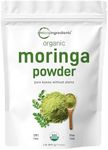
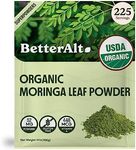
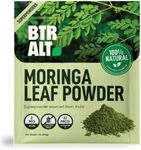


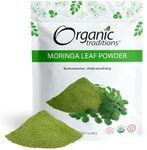


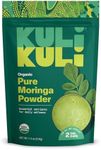



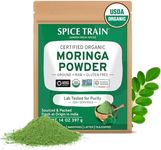

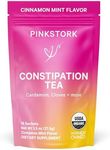
![EidolonGreen [China Medicinal Herb] Bamboo leaves tea, Bamboo Tea, Organic Bamboo Leaf Tea, (DanZhuYe/淡竹叶/댓잎 티백 차) Chinese Herbal Dried Loose Leaves 88g (3 oz)](https://images-proxy.bestreviews.guide/5ohPtF_9LZAAYXEXqj1_LVhUvrs=/0x150/https://m.media-amazon.com/images/I/51iCnl8SLSL._AC_CX679_.jpg)





